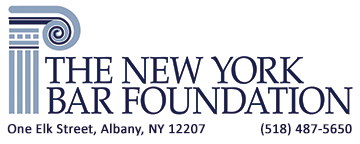Resources
Recent Legal Developments Regarding Abortion Access
(updated August 2025)
In February 2025, New York updated its shield law to offer additional protection for doctors providing telehealth abortion services from legal threats originating in states where abortion is banned or heavily restricted. The new law offers doctors the option to request that pharmacies list only the provider’s practice name, rather than the doctor’s personal name, on prescription bottle labels for specific medications.
The telehealth shield law was originally enacted in 2023, and it provides offers protection to doctors in New York. Specifically, the 2023 law prohibits New York law enforcement from cooperating with cases in other states against doctors in New York who use telehealth services to prescribe medication abortion or deliver any reproductive health care to people in states with restrictive abortion laws. It also protects doctors from professional discipline from medical malpractice insurance companies for delivering these reproductive telehealth services to out-of-state-patients.
For more information, please see here (2025 law) and here (2023 law).
1. FDA v. Alliance for Hippocratic Medicine was a Supreme Court case about access to mifepristone, a medication used for medication abortions. DRNY signed on to a disability amicus brief describing how restricting access to medication abortions would be harmful for people with disabilities. The Supreme Court of the United States unanimously decided to allow mifepristone to remain on the market. The court found that the Plaintiffs in the case, who sought to restrict access to mifepristone, did not have standing to challenge FDA regulations that limit medically unnecessary restrictions on mifepristone access, including restrictions that disproportionately affect people with disabilities. For more information about the case and how it affects people with disabilities, please see the statements by Disability Rights Education and Defense Fund and American Association of People with Disabilities, links available below.
4. Disability Rights & Reproductive Justice: Improving Sexual and Reproductive Health Care Access for People with Disabilities in a Post-Dobbs World, presentation and materials by Disability Rights Education and Defense Fund
5. DREDF Responds to Supreme Court’s Decision in Moyle v. United States (another case about abortion access that affects people with disabilities)
Pregnancy in the Workplace
EMPLOYER SPONSORED SHORT-TERM & LONG-TERM DISABILITY
REASONABLE ACCOMMODATION – EMPLOYMENT
Reasonable Accommodations to Access Medical Care
REASONABLE ACCOMMODATION REQUESTS - SUPPORT FROM MEDICAL PROVIDERS
HEALTHCAREPROVIDERS’OBLIGATIONSTOPROVIDE SIGN LANGUAGE INTERPRETERS
PATIENTS’ RIGHTS TO SIGN LANGUAGE INTERPRETERS
COMPLAINTS ABOUT MEDICAL PROVIDERS

Funding for this program came from a generous grant from The New York Bar Foundation.
